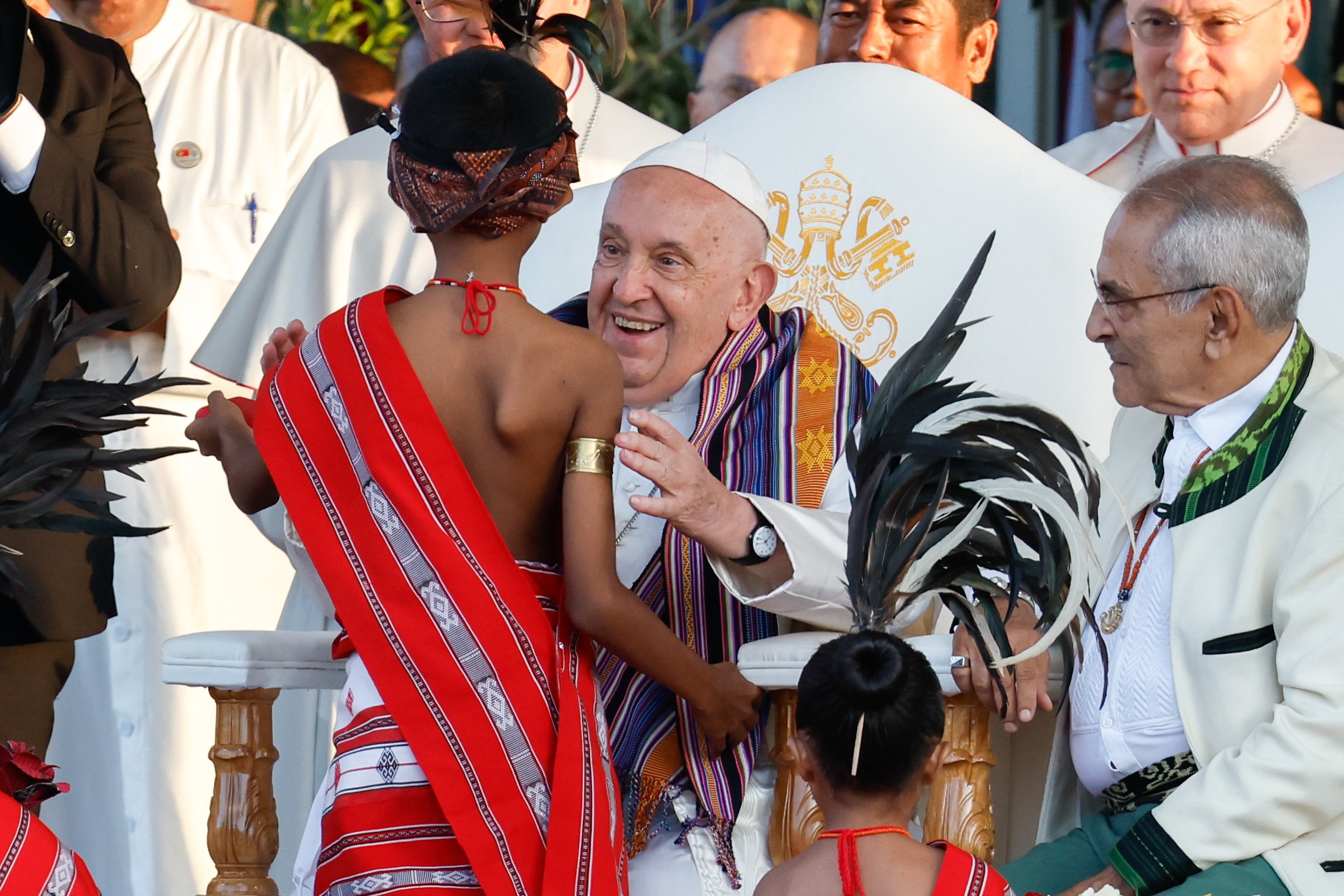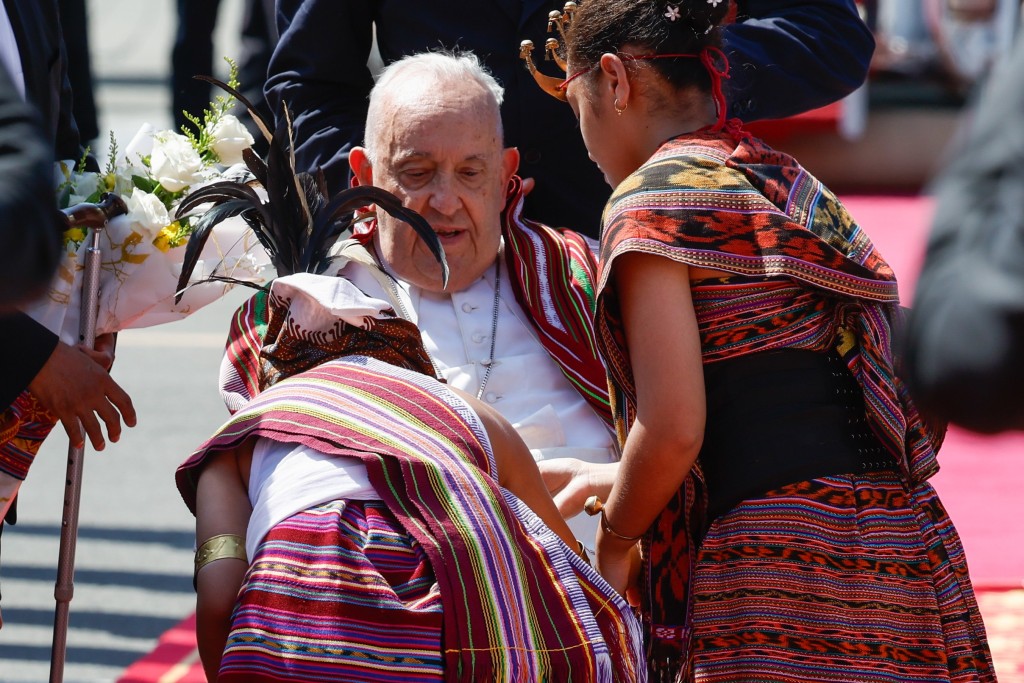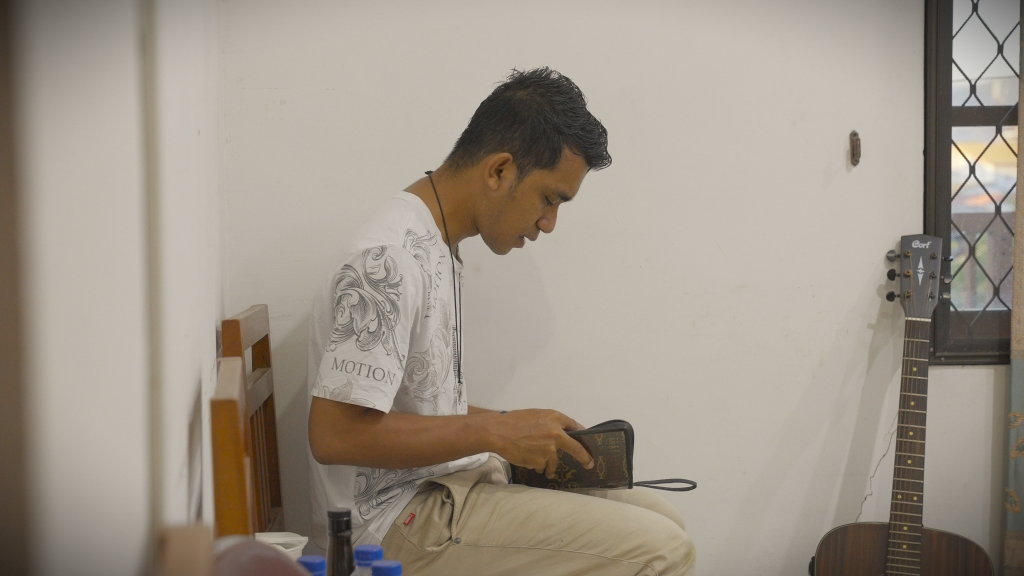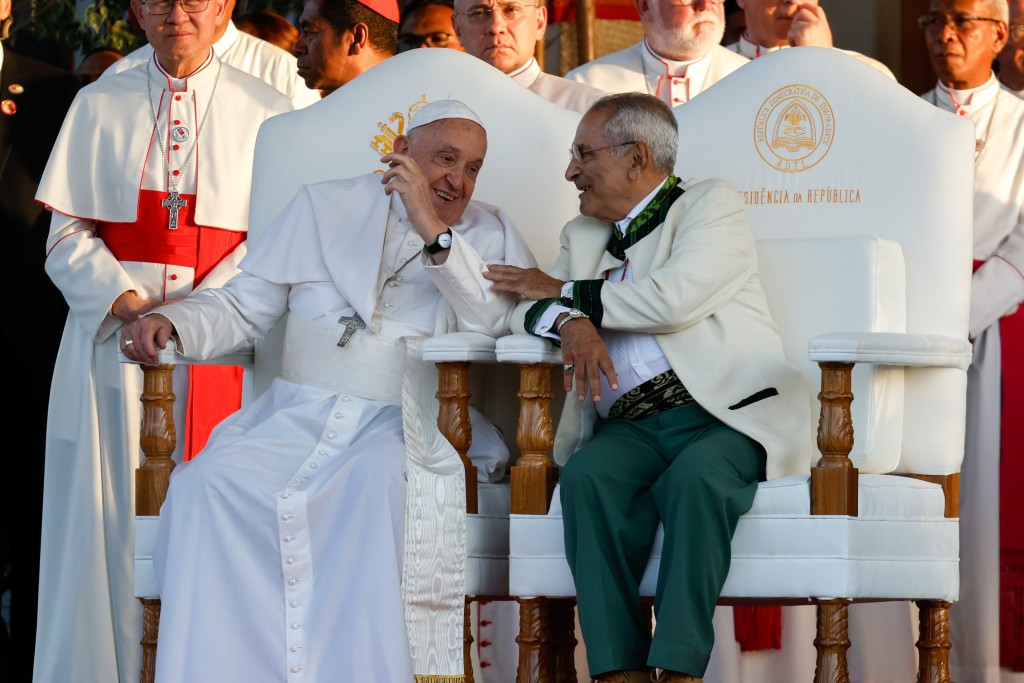
On September 9, 2024, the people of Timor-Leste welcomed Pope Francis with open arms as he began his historic visit to this predominantly Catholic nation. This small Southeast Asian country, with a population of 1.4 million people—95.97% of whom are Catholic—has deep roots in the Christian faith, largely due to the enduring efforts of missionaries. The Pontifical Mission Societies (TPMS) have played a vital role in the growth of the Church here, supporting both local vocations and the broader mission of evangelization.
As Pope Francis addressed the government and people of Timor-Leste at the Presidential Palace, Pope Francis referred to the trials the people in this country have gone through in recent years: “From 28 November 1975 until 20 May 2002, that is, from the date independence [from Portugal first, Indonesian troops later] was declared until it was definitively restored, Timor-Leste endured its greatest suffering and trial. It suffered. The country, however, has been able to rise again, finding a path to peace and the beginning of a new phase of development, of improved living conditions and of appreciation on all levels of the unspoiled splendour of this land and its natural and human resources.”
“You remained firm in hope even amid affliction and, thanks to the character of your people and your faith, you have turned sorrow into joy,” Pope Francis told government officials and leaders of civil society.
Landing in Dili Sept. 9, following three days in Papua New Guiena, the pope was welcomed at the airport by both President José Ramos-Horta and Prime Minister Xanana Gusmão, as well as two children who offered him flowers.
As he addressed the gathered faithful and leaders after a much-needed rest in the nunciature, Pope Francis urged the nation to continue drawing inspiration from the deep-rooted faith that has sustained them throughout their tumultuous history. “May the faith, which has enlightened and sustained you in the past, continue to inspire your present and future,” he said. “Que a vossa fè seja a vossa cultura!” — may your faith become your culture, guiding your principles and choices in line with the Gospel.
The Pope touched on challenges facing the nation today, particularly emigration, poverty, and social issues like youth violence and alcohol abuse. He urged the leaders to address these issues holistically, calling for education and social reform to prevent such problems and ensure that the nation’s resources are used for the common good. He also highlighted the Church’s social doctrine as a pillar for fostering integral development and promoting fraternity among all. “The Church’s social doctrine… promotes the development of peoples, especially the poorest,” he emphasized.
Pope Francis’ words resonate strongly in Timor-Leste, where the Catholic Church has been a stabilizing force throughout the country’s difficult history, including its struggle for independence. His visit shines a light on the country’s young population—65% of whom are under 30—and the need to nurture their potential through education and faith.

Pope Francis is greeted by two girls in traditional dress and given a tais, a traditional woven scarf, as he is welcomed to Timor-Leste at Presidente Nicolau Lobato International Airport in Dili Sept. 9, 2024. (CNS photo/Lola Gomez)
A Missionary Dream Fulfilled
Among those awaiting the Pope’s visit with anticipation was Ebid Lone, a young seminarian whose journey to the priesthood was made possible through the support of a Spanish Claretian missionary. Ebid, originally from Indonesia, has been living in Timor-Leste for his formation and is now preparing to be ordained a deacon. Reflecting on his journey, Ebid expressed his excitement: “It will be a blessing, a precious moment in which I will be able to see Francis directly, face to face; until now I have only seen him on television.”
Ebid’s dream of becoming a priest was nurtured by the missionaries who supported his education despite financial hardships. “I come from a very poor family, and the seminary is very expensive,” he explained. But thanks to the assistance of the Claretians and the mission-focused support from TPMS, Ebid is now ready to dedicate his life to Christ. His story is a powerful example of how missionary work transforms lives, giving individuals the opportunity to serve God and their communities. “I am available to go wherever the congregation and the Church need me because I am a missionary,” he shared.

Young Claretian seminarian Ebid Lone, who currently lives in Timor-Leste, was looking forward to seeing Pope Francis live, and not on TV. (TPMS Spain)
The Church’s Vital Role in Timor-Leste
The Catholic Church has played a central role in Timor-Leste’s journey, from advocating for human rights during its struggle for independence to nurturing its spiritual and social development today. As one of the youngest nations in Asia, Timor-Leste’s Church community is thriving. The Church operates 66 parishes and 51 social institutions, including hospitals, orphanages, and educational centers that provide care for the vulnerable. The Pontifical Mission Societies have been crucial in supporting these efforts, providing over $1.4 million in funding over the past five years to sustain the Church’s mission work here.
This funding, channeled through World Mission Sunday donations and other initiatives, has been instrumental in supporting the 347 priests and 1,038 religious sisters who serve in the country. Furthermore, PMS has contributed significantly to the formation of local clergy, allocating $841,870 specifically to support Timorese seminarians like Ebid. The country’s three dioceses—Dili, Baucau, and Maliana—are mission territories that rely on these funds for the daily operation of seminaries and for the training of future leaders of the Church.
Pope Francis recognized the Church’s vital role during his address in Dili, paying tribute to the missionaries who first brought the faith to this corner of the world. “The first Dominican missionaries arrived here from Portugal in the sixteenth century, bringing with them the Catholic faith and the Portuguese language,” he said. He further emphasized the Church’s role in evangelizing cultures while respecting their uniqueness. “Christianity enculturates, it takes on the cultures and therein the various Eastern rites of the various peoples,” he said, acknowledging the blending of the Catholic faith with local traditions.

Pope Francis and President of Timor-Leste José Ramos-Horta share a moment during a welcome ceremony at the presidential palace in Dili, Timor-Leste, Sept. 9, 2024. (CNS photo/Lola Gomez)
A Bright Future for Timor-Leste
Despite its challenges, Timor-Leste stands as a beacon of hope for the Catholic Church in Asia. Pope Francis’ visit marks a new chapter in the country’s development, with a focus on education, youth, and sustainable growth. Timor-Leste’s future lies in the hands of its young people—65% of the population is under the age of 30—and the Church has made significant investments in their education. Through the support of the Pontifical Mission Societies, 320 schools serve nearly 83,000 students, equipping them with the knowledge and faith to become leaders in their communities.
The Pope spoke directly to this future generation, urging them to take ownership of their country’s path forward. “You are a young people… [and] the first area for you to invest in is education,” he advised. He encouraged the country’s leaders to continue building strong institutions that serve the common good and to focus on the integral development of their citizens. The Church, with its social doctrine, stands ready to assist in this mission.
As Timor-Leste looks to the future, the words of Pope Francis and the example of seminarians like Ebid Lone offer inspiration and guidance. The country’s deep faith, combined with the ongoing support from the global Catholic community, ensures that Timor-Leste will continue to be a shining example of resilience, hope, and the power of missionary work. As the Pope concluded in his speech, “May the faith, which has enlightened and sustained you in the past, continue to inspire your present and future.”


